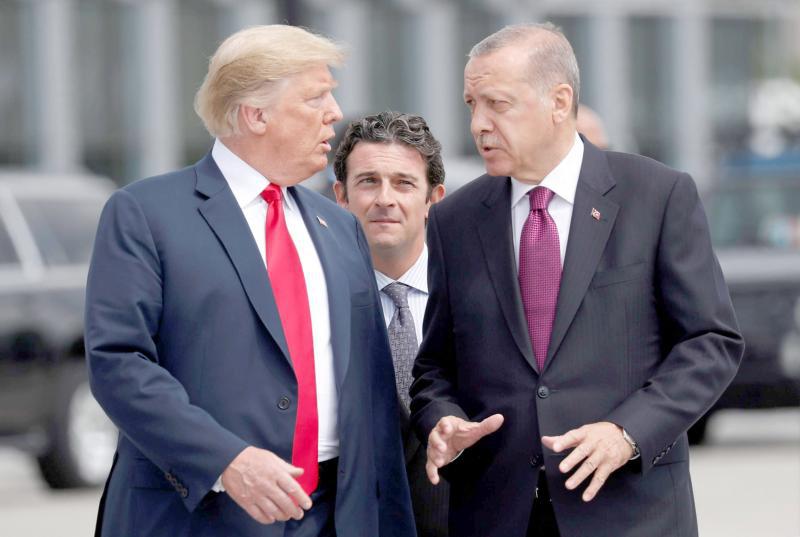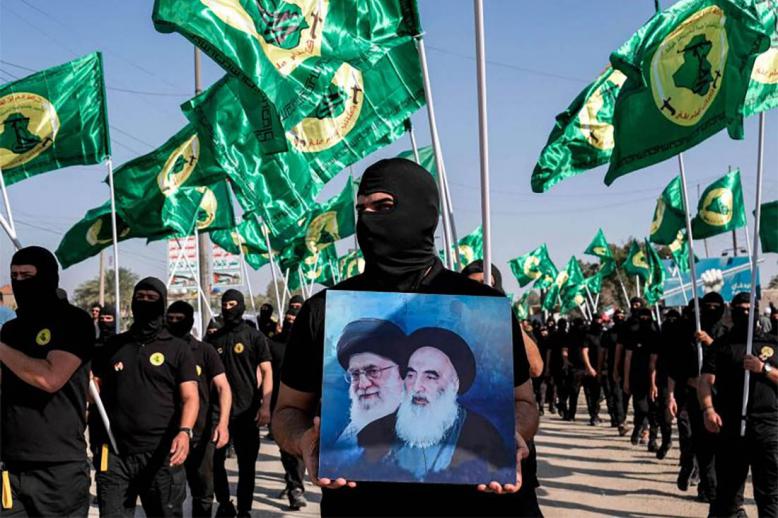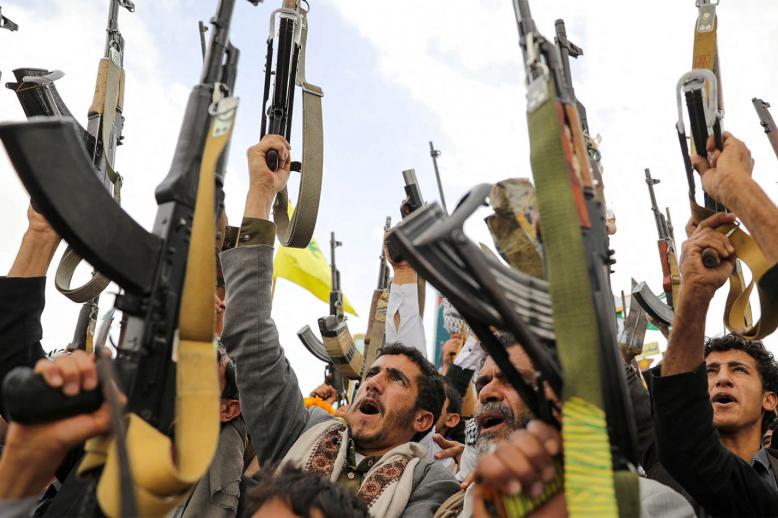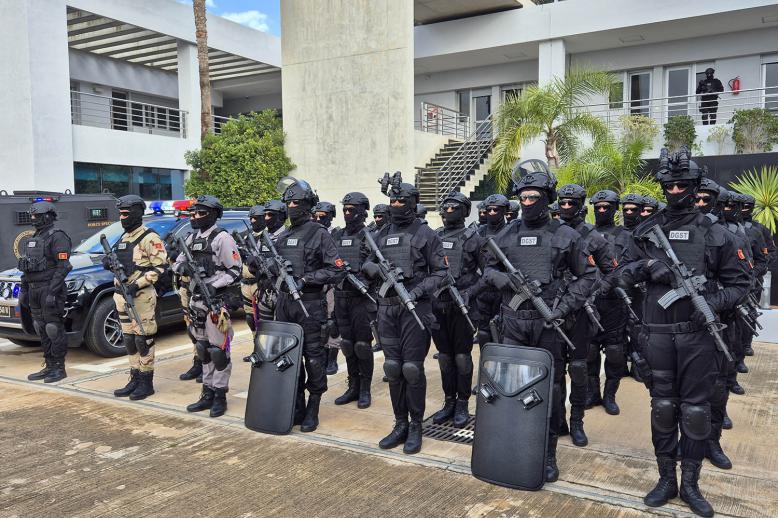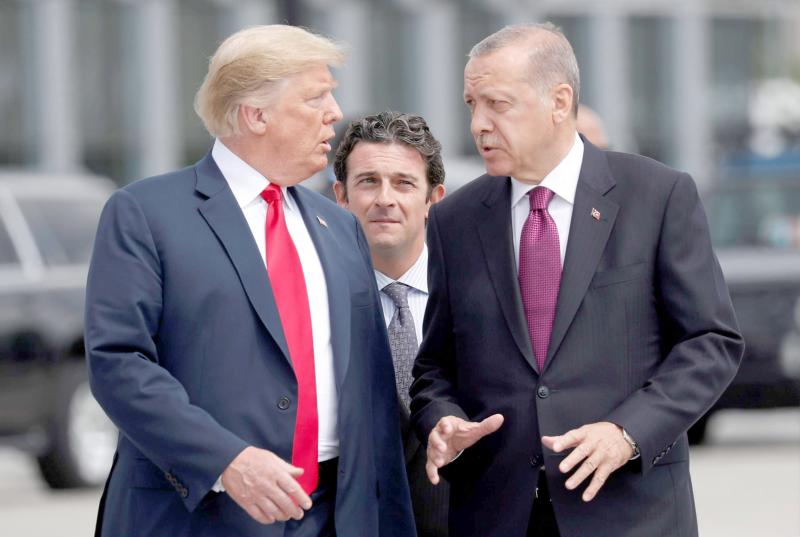Arm-wrestling or not, Turkey’s spat with the West leaves a mark
It seems that in almost every aspect, at every angle of diplomatic engagement, Turkey and the West have become diametrically opposed to each other.
Turkish President Recep Tayyip Erdogan has railed at Washington for refusing to extradite Fethullah Gulen. Ankara regards the cleric, who lives in Pennsylvania, as the prime suspect behind the failed July 2016 coup attempt. Gulen denies the accusations.
Erdogan rages against US support for Kurdish militias that have been largely responsible for eliminating the Islamic State in northern Syria and Iraq.
Turkey has bought a major missile defence system from Russia, angering the United States.
Europe hasn’t escaped the stream of vitriol. Erdogan has referred to European countries as “failed cradles of democracy” and he has called its leaders “vile.” He told Turkish parents not to send their children to the West to be educated.
Then there’s the sorry case of German footballer Mesut Ozil, who retired from international football citing an avalanche of racism and criticism in Germany after meeting Erdogan in May.
Erdogan has pushed for better relations with several Middle Eastern countries and Asia to boost his Islamic credentials and to show that Turkey was not reliant on the West.
Look for context and it becomes clear that anti-Western, and particularly anti-American, sentiment in Turkish society predates the Erdogan era.
Turkey is one of the last countries to have elements of society identifying as radical leftist, a hangover from the Cold War period. For years, Pew Research and other polls have recorded very “unfavourable” views of the United States among Turks.
The anti-Western rhetoric is useful for Erdogan. It allows him to sell his own message domestically. His anti-Western narrative plays well with his Islamist followers. The opposition Republican People’s Party has long exhorted the importance of good relations with the West to show up Erdogan and the Justice and Development Party as provincial and nativist. That clearly has not worked.
Even so, look at trade and economic activity and there is a very different set of circumstances.
Here are the figures: 44% of Turkey’s exports go to EU members and 38% of its imports are from the European bloc. Trade in goods and services with the United States was more than $22 billion in 2016.
Trade with neighbouring Iran, on the other hand, has fallen more than half since 2012, Turkey’s Ministry for Foreign Affairs said. In 2016, it was $9.7 billion.
The political elite in the West and Turkey understand that they need each other and no one must cross the line that could lead to a diplomatic shutdown.
Turkey’s official position is full of contradictions, however. Those in the higher political echelons are biting in their criticism but people on the level below — cabinet ministers, for example — regularly strike a more conciliatory note. In October, Turkish Foreign Minister Mevlut Cavusoglu said while visiting Germany last year: “If you (Germany) take one step towards us, we will take two towards you.”
Statements such as these are made all the time and are for the most part meant to keep the door ajar for communication between Ankara and Western capitals.
That’s because neither the United States nor Europe wants deteriorating ties with Ankara. Turkey is a NATO member. It controls the flow of refugees into Europe. It serves as a bulwark against Russian influence in the region. Turkey is set to become an increasingly important conduit for energy supplies from Central Asia to Europe, particularly if Western relations with Russia continue to slide.
Neither side seems able to see the long-term damage their political leaders are incurring. It’s mostly in terms of how the people of Turkey, Europe and the United States perceive each other and each other’s countries. The seeds of distrust sown by politicians and reported by right-wing media outlets are creating a false reality. What’s troubling is it won’t be easily reversed.
Stephen Starr is an Irish journalist who lived in Syria from 2007 to 2012. He is the author of Revolt in Syria: Eye-Witness to the Uprising (Oxford University Press: 2012).
This article was originally published in The Arab Weekly.

